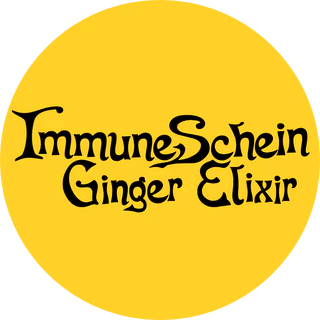
REAL, HONEST
INGREDIENTS MATTER
All of our Ginger Elixirs are hand crafted from 100% real food ingredients. It all starts with our Classic Ginger Elixir, which is created with fresh organic ginger root, organic lemon juice, and wildflower honey. We offer a wide variety of ginger elixirs with one ingredient added to the Classic Ginger Elixir combination, along with vegan options using local Hudson Valley maple syrup.

Ginger

Lemon

Cardamom

Turmeric

Garlic

Cinammon

NYC Wildflower Honey

Elderberry
Lavender

Hibiscus
Citra Hops

Black Currant
The Schein Difference
Handcrafted in Small Batches
ImmuneSchein is handmade in small batches and is not mass produced, ensuring freshness and quality with every bottle.
Pure and Simple
Made with only 4 real food ingredients. A quick and easy way to get all the holistic deliciousness you love.
Versatile and Flexible
Take as a shot, add to water, make mocktails/cocktails, salad dressings or anything that you want to Ginger Up!
schein on
Choose Elixir
Make your selection of elixir based off of the taste or ingredient that you want to add to your diet and recipe.
Slurp, Mix or Blend
Stay simple with our elixirs or be as creative as you like and design fun drinks and foods for your family and friends.
Enjoy and Share
Happiness is enjoying the pure and unique taste of our ginger elixirs with a ginger-loving friend.

WORD ON THE STREET
“The most amazing scrolleez that I have ever had. I have it on subscription. In the month of December it was not available but when I received an email that it’s back I was thrilled. Very good for digestion and also for everall health.”
Nirmala S.
“Love the great tasting ginger elixirs. It is my first go to when I’m feeling a little under the weather. Quick fix and helps immune system stay strong. Also love in cocktails and so much more. I’m addicted!”
Anat A.
“We have been doing business with these folks for a very long time. Their products are superb because they honestly care about what they make and their customers as well. The customer service is always excellent.”
